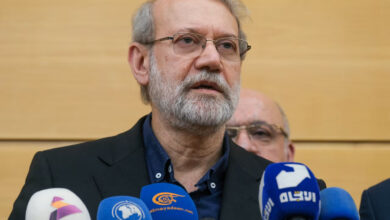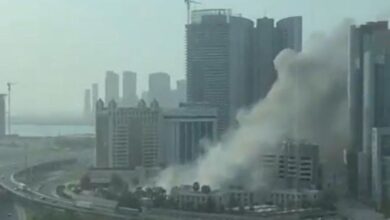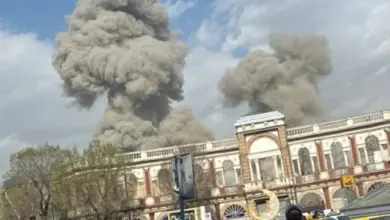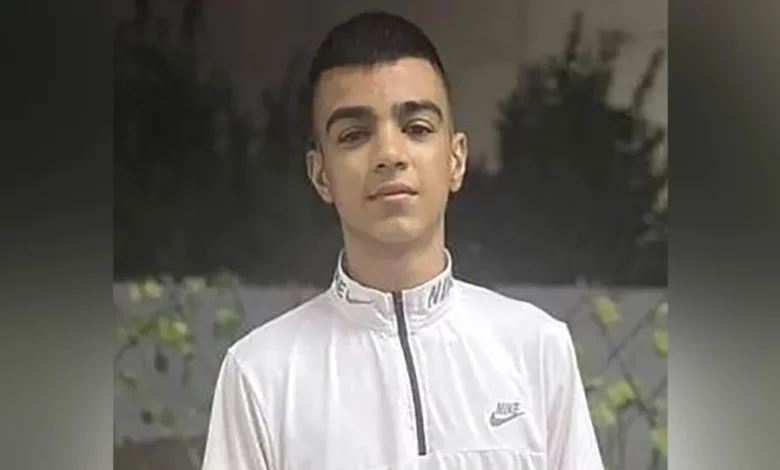
Mohammad Fayez Balhan was “killed by live occupation bullets in the head, chest and abdomen,” the ministry said, adding that two other people were injured by live ammunition and sent to a hospital in Jericho for treatment.
The Israeli military said they raided the camp to arrest a “terror suspect.”
“During the activity, violent riots were instigated in a number of locations,” the Israel Defense Forces (IDF) said in a statement. “As the soldiers left the area, suspects opened fire toward them, hurled explosive devices and Molotov cocktails. The soldiers responded with live fire and .22 caliber ammunition. Hits were identified.”
Tensions in Israel and the occupied West Bank have spiraled in the aftermath of recent Israeli police raids on the al-Aqsa mosque in Jerusalem.
Palestinian Authority Prime Minister Mohammad Shtayyeh warned that images of Israeli forces storming the mosque had “created an incredible mood of anger among every Palestinian, wherever they are – in Gaza, in Ramallah, in the West Bank, in Lebanon, in Syria,” and called on Israel to deescalate the situation.
“There is a mood of anger that is there in the heart and mind of every Palestinian,” he said in an exclusive interview with CNN’s Christiane Amanpour.
Over the last week, dozens of rockets were launched from Lebanon, Gaza and Syria into Israeli territory, followed by Israeli retaliatory strikes.
On Friday, a vehicle hit a group of tourists in Tel Aviv, killing one Italian national, in what Israeli authorities described as a terror attack. Two sisters, aged 15 and 20, with dual British-Israeli citizenship were also killed Friday in a shooting attack in the West Bank. On Monday, the mother of the women, Lucy Dee, succumbed to wounds sustained during the shooting.
Israeli Prime Minister Benjamin Netanyahu condemned the shooting as a “severe terrorist attack.”
“On behalf of all citizens of Israel, I convey heartfelt condolences to the Dee family on the passing of the mother of the family, Leah (Lucy), who was murdered in the severe terrorist attack in the Jordan Valley last Friday, together with her two daughters Maia and Rina,” Netanyahu said in a statement Monday.
Netanyahu on Friday instructed Israeli police “to mobilize all border police units in reserve and the IDF to mobilize additional forces in face of terrorist attacks,” according to his office. The Israeli military said it was on high alert, calling up an unspecified number of reservists amid what it described as “very volatile times.”
Also on Monday, thousands of Israeli settlers staged a march to Evyatar, an illegal settler outpost in the occupied West Bank that has been a flashpoint for Israel’s settler movement. Far-right Israeli national security minister Itamar Ben-Givr, among those who have spearheaded a campaign to legalize the outpost, was among the protesters.
Evyatar sits on a hilltop, along a corridor linking Tel Aviv to the Jordan Valley, known locally as Jabal Subeih. Palestinians who say they own land in the site have been holding counter-protests.
Clashes between Israeli forces and Palestinians close to the nearby town of Beita led to nearly hundreds of injuries, the Palestinian Red Crescent said.
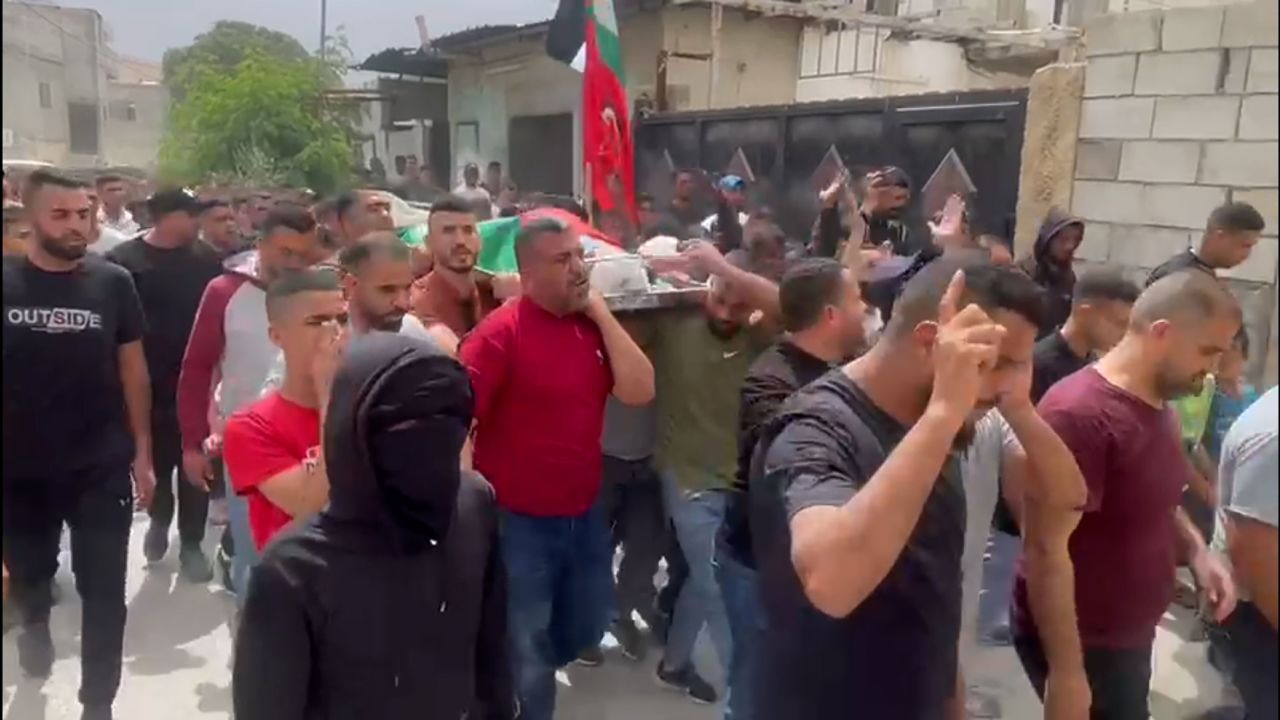
The Palestinian Red Crescent said 216 people were injured in the clashes, including 22 people hit by rubber bullets which, they say, were fired by Israeli forces. Three people were transferred to hospital, it also said.
In a statement, the IDF said “a violent riot” had been instigated near Beita, adding that “rocks were hurled at the soldiers, lightly injuring two IDF soldiers” and “security forces at the scene responded with riot dispersal means.”
Asked about video shared on social media that appeared to show Israeli forces throwing tear gas canisters at journalists in the area, the Israel Police released a statement saying it “appears that the security forces failed to adhere to the established rules and guidelines” in ensuring freedom of the press.
Palestinians in Beita, which is just south of Nablus, say they own the land at Evyatar.
Israeli settlers left Evyatar in 2021 after a deal with the government of then-Prime Minister Naftali Bennett. The buildings remained as part of the government’s deal with the settlers.
“The land of Israel belongs to the people of Israel, belongs to us,” Knesset member Ariel Kallner, of Netanyahu’s Likud party, told CNN. “I think that those who live here, the Arabs and so on, they can live here. But it’s our land.”
Under international law, both the West Bank and East Jerusalem are considered occupied territory and settlements there illegal, which Israel disputes.
Nabil Abu Radina, a spokesperson for Palestinian Authority President Mahmoud Abbas, condemned the march as an “invasion of settler militias, led by ministers from the Israeli occupation government.” Abu Radina also demanded than “immediate and quick intervention” by the US government to “stop this madness for which the entire region will pay the price.”


